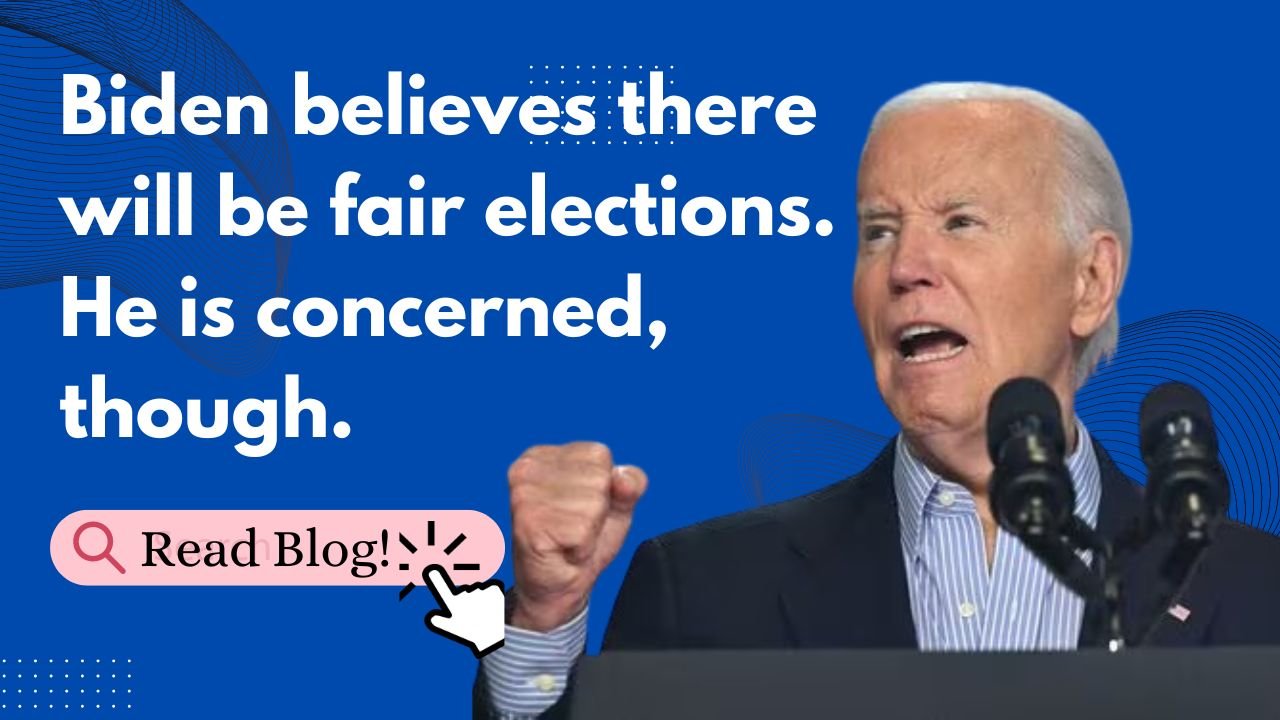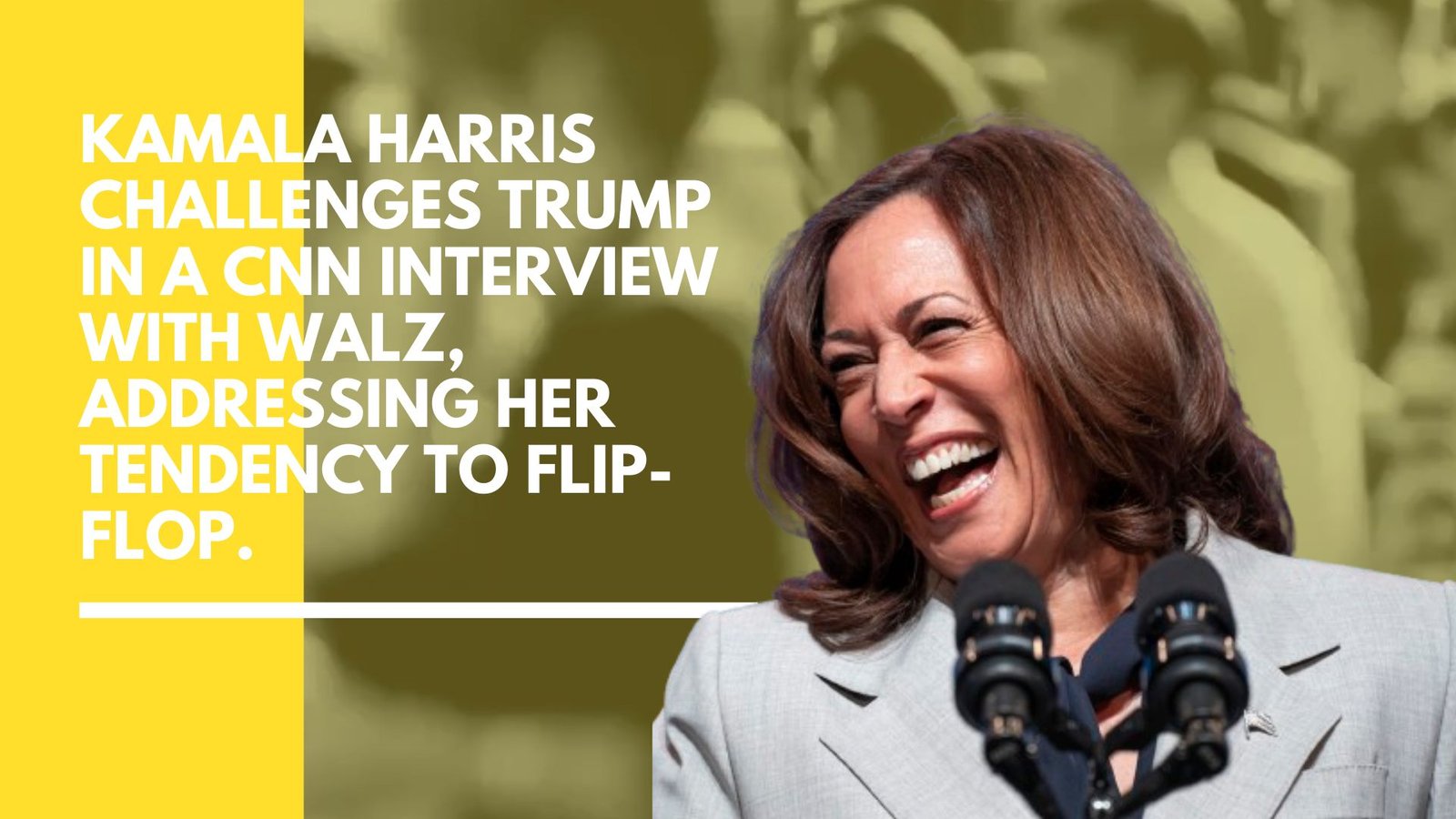Biden Confident About Election Fairness but Concerned Over Peaceful Transition: Key Insights Ahead of 2024
President Joe Biden has offered a cautious and optimistic assessment of the possible outcomes as the 2024 U.S. presidential election approaches. On October 4, Biden made an unexpected appearance at the White House press conference and reaffirmed his belief that the election process will be fair and impartial. But he raised a serious worry about the peaceful transition of power, particularly in light of outgoing President Donald Trump’s actions and words, which continue to cast doubt on the validity of the results of the 2020 election.
Confidence in a Fair Election Process
- Because American institutions have withstood several tests in recent years, Biden has faith in a fair electoral process. He made it clear that he believes the election’s mechanics will provide an accurate outcome. The American election process has been universally regarded as reliable, although facing substantial obstacles from political division and misinformation. Both state and federal authorities have undertaken protections to preserve the integrity of the vote, including measures against cyber-attacks and efforts to suppress disinformation that may erode faith in the results.
- To minimize fraud and uphold transparency, election changes have been implemented, including tighter security for mail-in votes and new technology to track election day activity. Following his loss in the 2020 election, Trump and his backers made baseless accusations about fraud; these activities have been crucial to rebuilding confidence. Biden’s confidence in these establishments demonstrates his conviction that the election process will remain stable despite political unrest.
- The president does not, however, have complete faith in the fairness of the process, especially in view of persistent efforts by some political groups to discredit elections by making unfounded allegations and spreading conspiracies. These acts put into question the democratic tenet of accepting election results, and they can increase public doubt about their validity.
Concerns Over a Peaceful Transition
- But Biden’s biggest concern is that there would be bloodshed or disruption in reaction to the election results. His worries stem from the contentious political environment that followed the 2020 election, when Trump and his allies repeatedly and falsely claimed that there was rampant voting fraud. Due to Trump’s unwillingness to accept the results, there were several lawsuits filed challenging the results, which culminated in the violent mob attack on the U.S. Capitol on January 6, 2021, which was intended to stop Biden’s win from being certified.
- In light of these incidents, Biden issued a warning, stating that Trump’s divisive rhetoric may cause unrest once more, especially if he declines to recognize the results of the 2024 election in the event that he loses. The president voiced his concerns about a peaceful handover of power, particularly in light of Republican politicians’ reluctance to openly recognize the outcome of the previous election, including vice presidential nominee J.D. Vance. Vance avoided discussing whether he would accept the results of the next election at a recent debate, a move that Biden found concerning.
- This unwillingness to commit to a smooth handover of power feeds into Biden’s larger anxiety about the possibility of instability. Trump’s persistent narrative of a “stolen” 2020 election has fueled distrust among his fans, many of whom accept the disingenuous accusations of election manipulation. Biden claims that this creates a risky precedent for the 2024 contest, especially if Trump’s supporters choose to contest the validity of a further electoral defeat.
Implications of a Disputed Election
- There are significant concerns over the viability of American democracy when there is a chance of a disputed election. Although smooth handovers of power have always been a feature of American politics, the events of January 6 upended the long-held notion that these handovers are inevitable. Biden is well aware that political tensions in the United States are still quite high, especially in light of the potential for another stormy post-election period. In addition to addressing the possibility of unexpected reactions, his words reflect the twin realities of getting ready for an election that he thinks will be handled properly.
- An election that is contested might have important international ramifications. Any agitation or doubt about the result might harm American democracy’s standing internationally. In the days and weeks that follow the election, the United States will need to manage the difficulties of upholding electoral integrity and guaranteeing the safety and security of the country while the whole world watches.
Biden's Strategy Moving Forward
- Biden and his administration will probably emphasize in the run-up to the election how important it is to believe in the political process and to ignore false information. To be ready for any future upheaval, they will have to collaborate closely with law enforcement, state and municipal governments, and civil society organizations. Furthermore, Biden will persist in advocating for solidarity and collaboration across all political factions to guarantee a peaceful handover of power, should it be necessary.
- Biden’s message is very clear as November 2024 draws near: all parties must pledge to respect the democratic process and accept the outcome of the election, even though the election’s technicalities are safe. The president’s worries are a reflection of both the short-term difficulties of this election and the longer-term, more fundamental problems that American democracy is experiencing in a politically divided nation.
While expressing belief in the constitutionality of the next election in 2024, President Biden also raises serious concerns about the possibility of instability and a peaceful transfer of power, especially in light of the polarizing political environment and persistent distrust about the validity of previous election outcomes. His actions highlight how important it is for all political players to pledge to uphold the electoral college in order to preserve the integrity of American democracy.
In Conclusion



